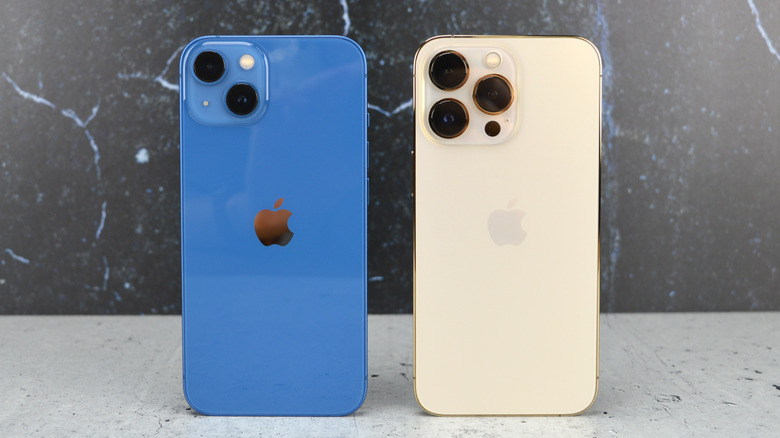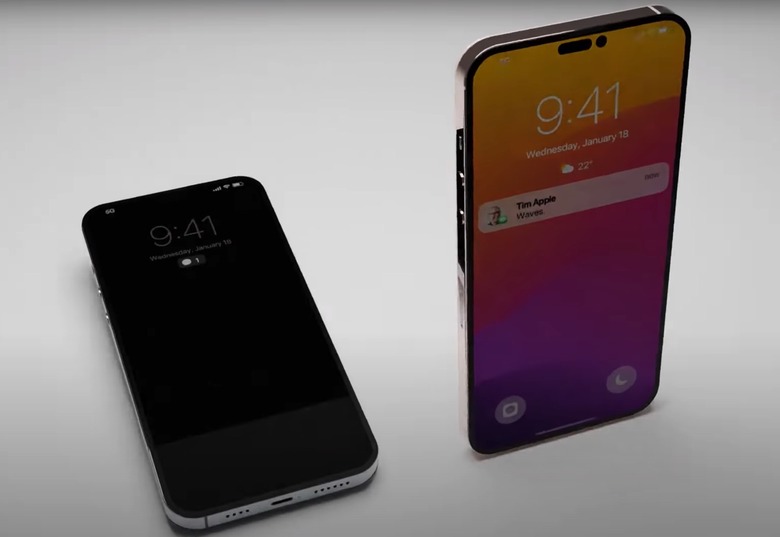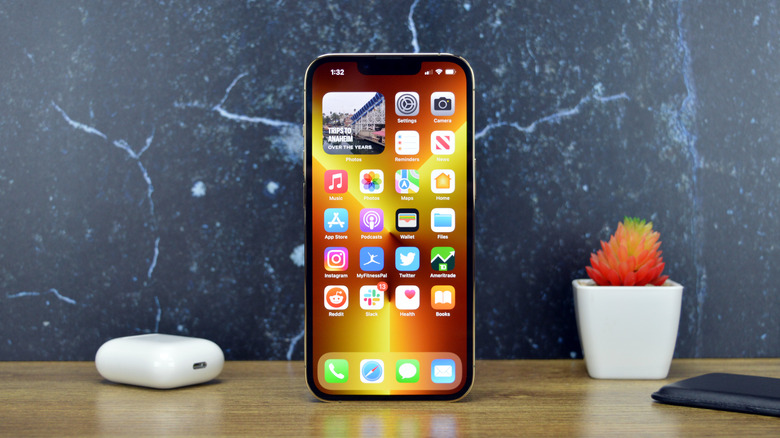Only iPhone 14 Pro Models To Get A16 Bionic Chip Upgrade, Insider Says
Apple is widely expected to launch four iPhone 14 models this year, coming in two sizes. The mini variant is going away, so Apple will have two 6.1-inch and two 6.7-inch in the iPhone 14 series. While some of the previous reports said the iPhone 14 and iPhone 14 Pro models will be closer than ever when it comes to specs, a well-known insider offers a contrasting look. Only the iPhone 14 Pro models will reportedly get the A16 Bionic System-on-Chip (SoC) upgrade this fall.
The Apple way
If the information is accurate, then 2022 will be the first year Apple changes its policy regarding SoC use. We might be looking at the first iPhone generation where the same-year phones will not feature the same SoC. The iPhone 14 Pro will get the A16 Bionic chip, while the iPhone 14 models will stay on the current-gen A15 SoC.
The iPhone is still the uncontested leader when it comes to smartphone performance, and that's thanks to the A-series chips. The A15 Bionic doesn't just power the iPhone 13 models Apple launched last fall. The iPhone SE 3 that arrived last week also rocks the same processor.
That makes the iPhone SE 3 as powerful as the iPhone 13 models. And the affordable iPhone will outperform the 2022 Android flagships. That's because none of the SoC available to Android vendors can outdo the A15 Bionic.
Apple has used the same SoC inside the same-year iPhones ever since it started launching multiple iPhones every fall. For example, the iPhone 8 versions that launched alongside the iPhone X featured the same A11 Bionic processor as the redesigned iPhone X. Variations of the A-series chips in the latest iPhones would then be used in the iPad models that followed.
This policy might change with the iPhone 14 Pro models, which could be the only 2022 iPhones to run on the next-gen A16 Bionic.
The iPhone 14 Pro's big A16 Bionic upgrade
Well-known analyst and leaker Ming-Chi Kuo took to Twitter to post this particular iPhone 14 Pro prediction.
According to Apple's rules for naming iPhones, the four new 2H22 iPhones could be called iPhone 14 (6.1"), iPhone 14 Max (6.7"), iPhone 14 Pro (6.1"), and iPhone 14 Pro Max (6.7").
— 郭明錤 (Ming-Chi Kuo) (@mingchikuo) March 13, 2022
He reiterated claims that the iPhone 14 models will come in two screen sizes this year. The iPhone 14 will include the following phones: 6.1-inch iPhone 14, 6.7-inch iPhone 14 Max, 6.1-inch iPhone 14 Pro, and 6.7-inch iPhone 14 Pro Max.
In a separate tweet, he said that the iPhone 14 versions will stay on the A15 SoC. The iPhone 14 Pro and iPhone 14 Pro Max will get the A16 Bionic treatment.
Only two Pro models would upgrade to the A16 processor, while the 14 & 14 Max will remain the A15. All four new models will likely come with 6GB RAM, with the difference being LPDDR 5 (14 Pro & 14 Pro Max) vs. LPDDR 4X (14 & 14 Max). https://t.co/tHcszIz6gX
— 郭明錤 (Ming-Chi Kuo) (@mingchikuo) March 13, 2022
That's not the only thing that's changing this year. All iPhone 14 versions will feature 6GB of RAM, Kuo said. We saw similar claims recently, although some rumors said the Pro models will get 8GB of RAM. Historically, Apple equipped more RAM on the Pro iPhones.
One more significant specs bump
If Kuo's information is accurate, the iPhone 14 Pro will get LPDDR5 RAM, while the iPhone 14 models will have LPDDR4X memory.
Currently, the iPhone 13 Pro models have 6GB of RAM, while the regular versions pack 4GB of RAM. But we're looking at LPDDR4X RAM for all four 2021 iPhones. Meanwhile, most Android flagships have moved to the speedier LPDDR5 memory.
That said, there's no way to verify these iPhone 14 specs claims at this time. But Kuo has a great track record predicting Apple's moves. If the iPhone 14 Pro models will be the only ones to get the A16 Bionic chip and the faster RAM, we're looking at a significant policy change for iPhone performance.
That said, the A15 Bionic has no match from the 2022 Android flagships. So there's a case for having the SoC power the more affordable iPhone 14 models. The memory bump to 6GB will turn the regular iPhone 14 models into iPhone 13 Pro equivalents.


